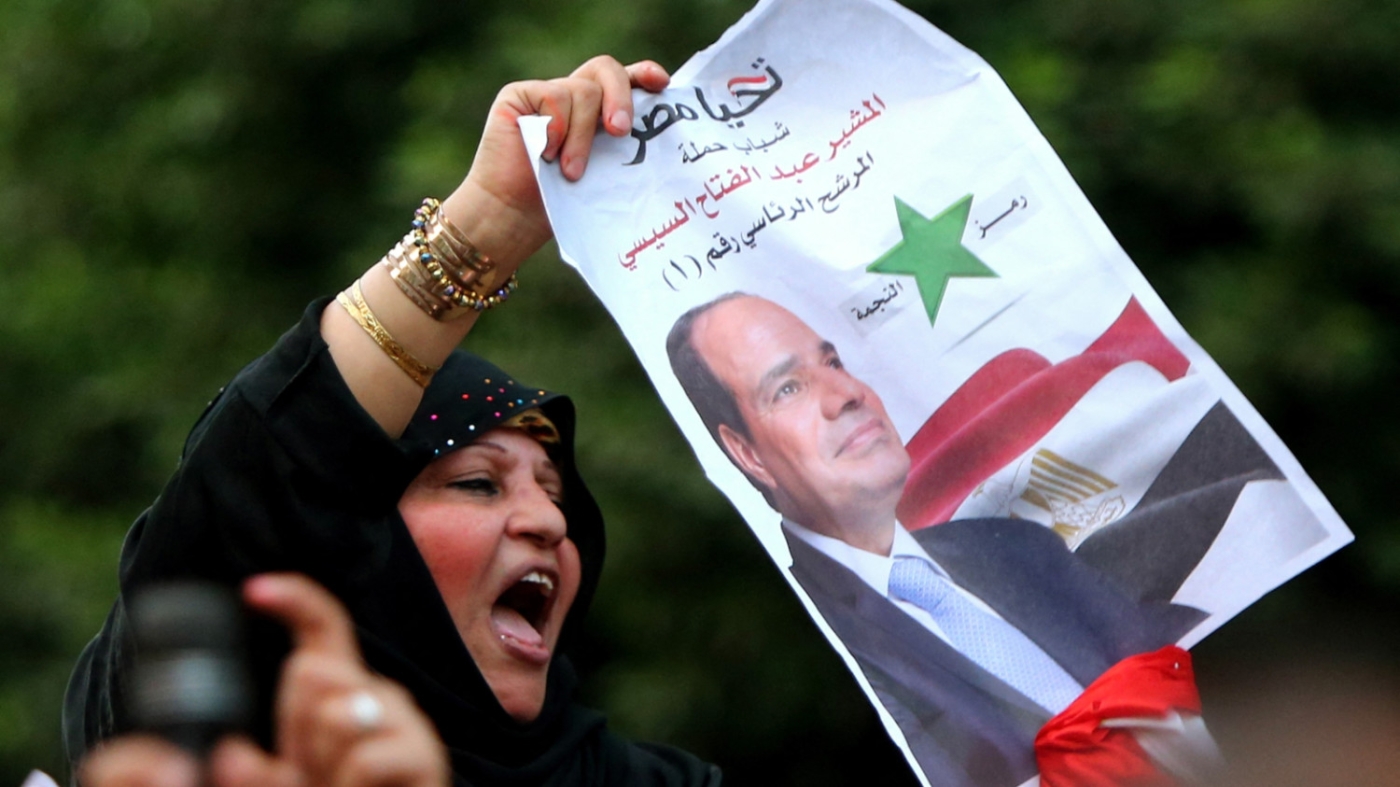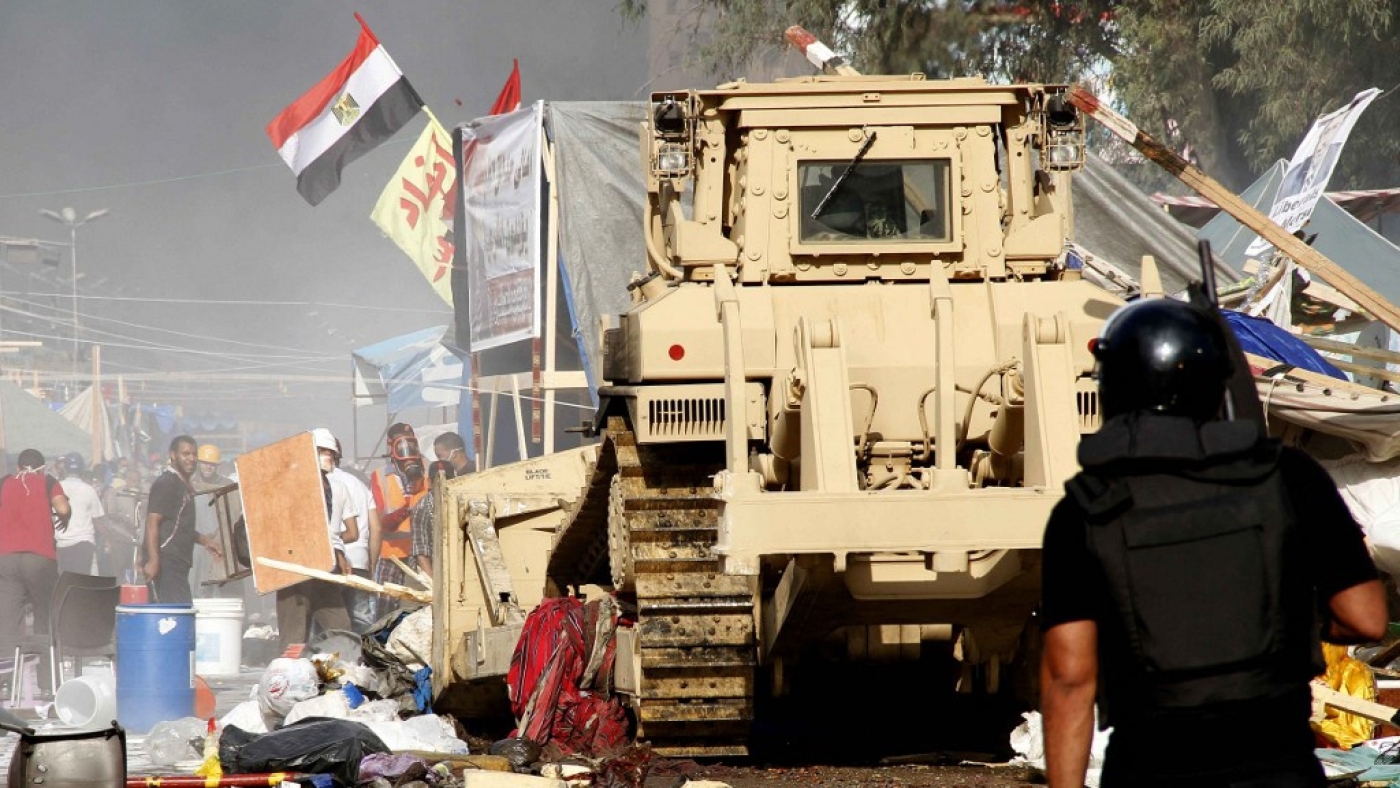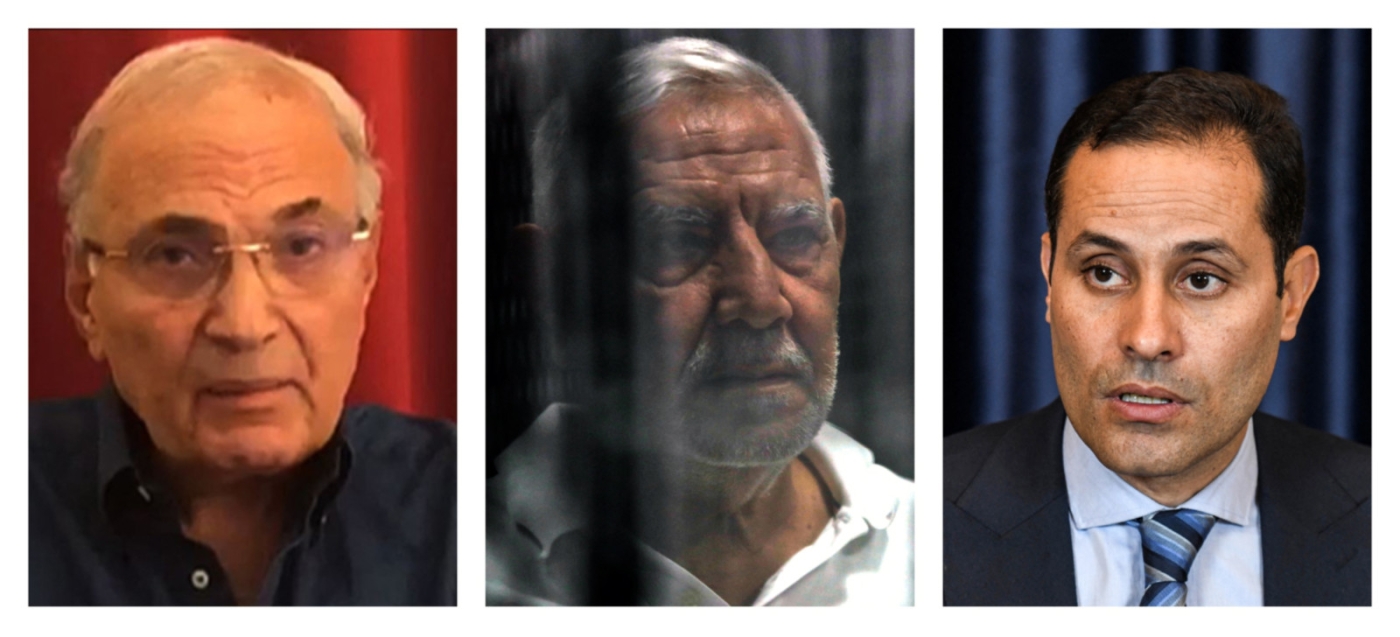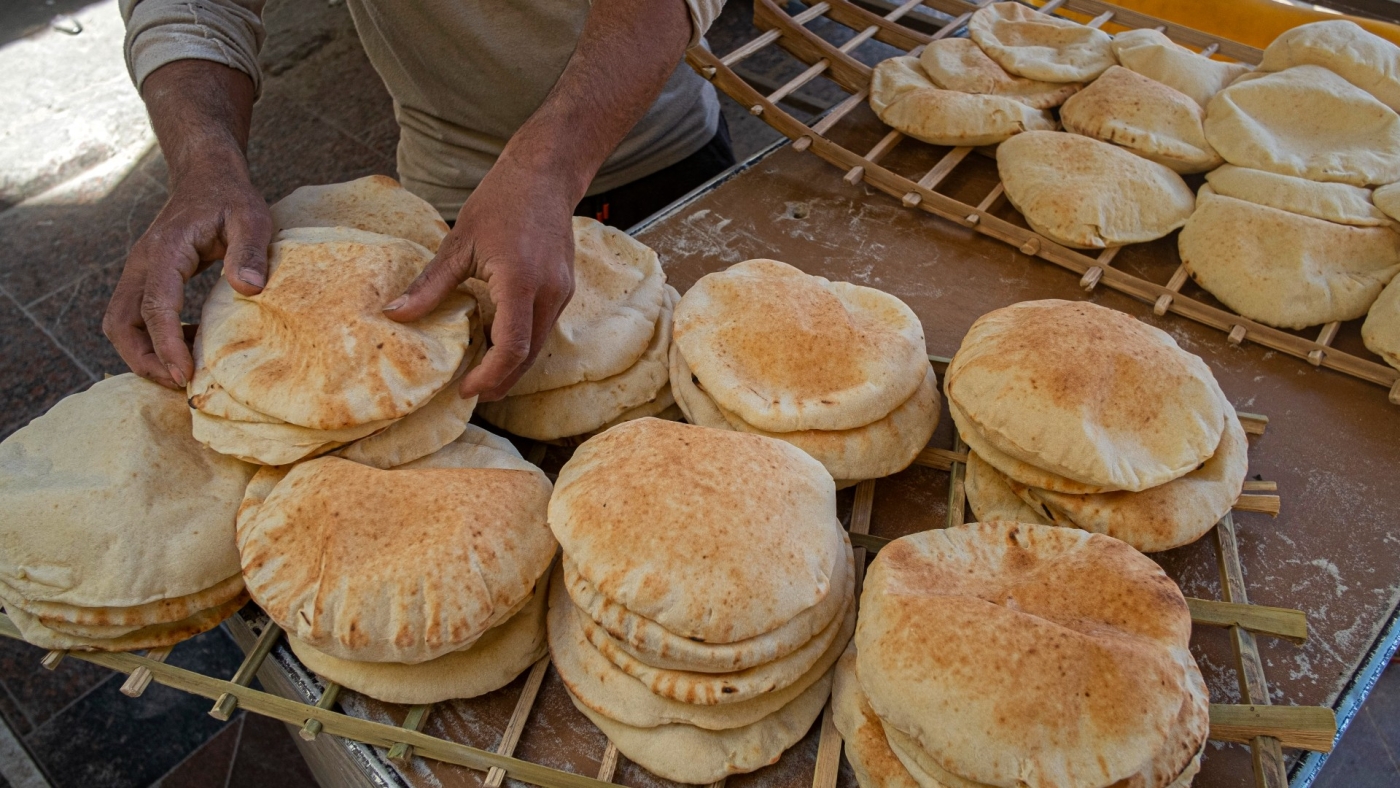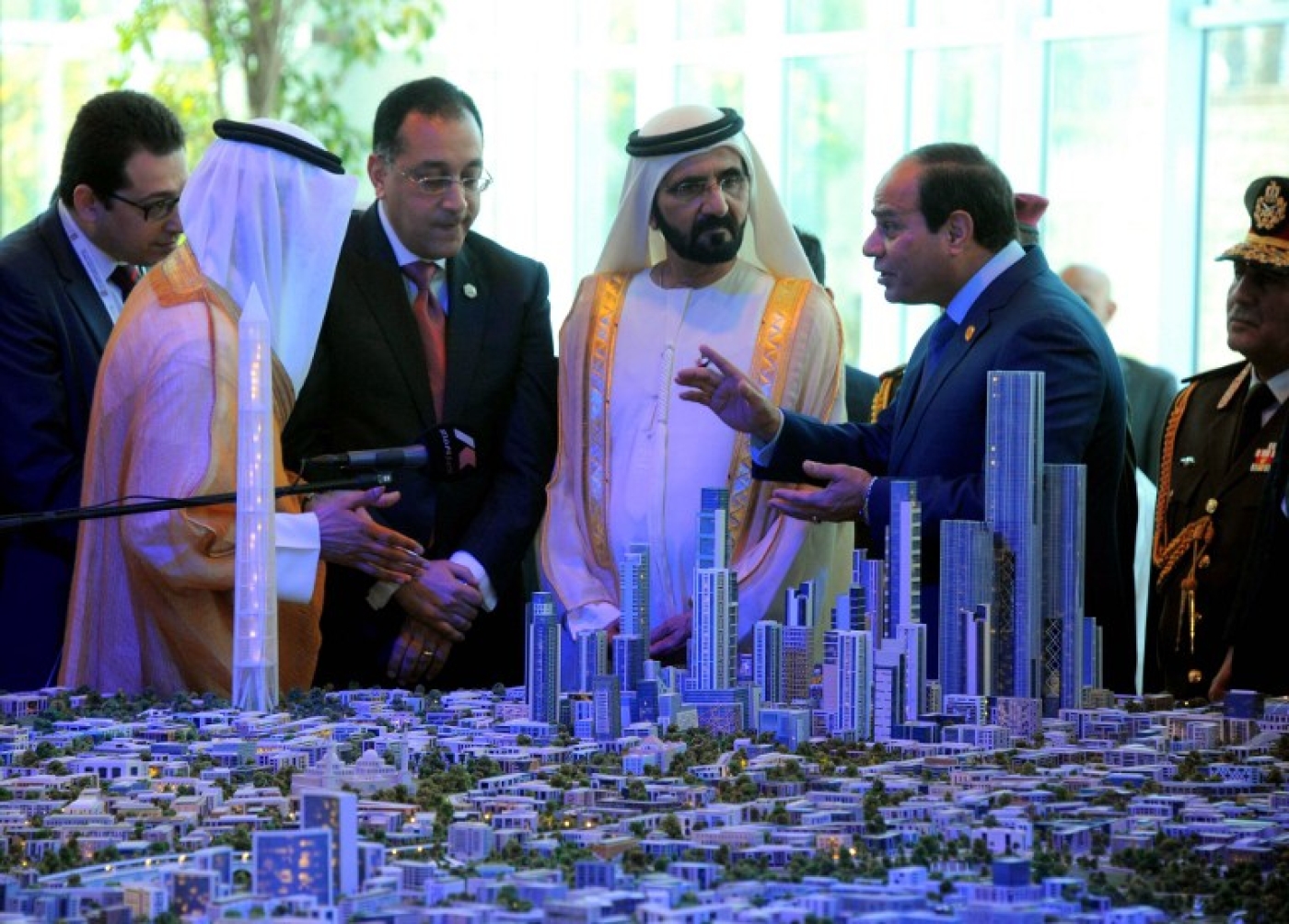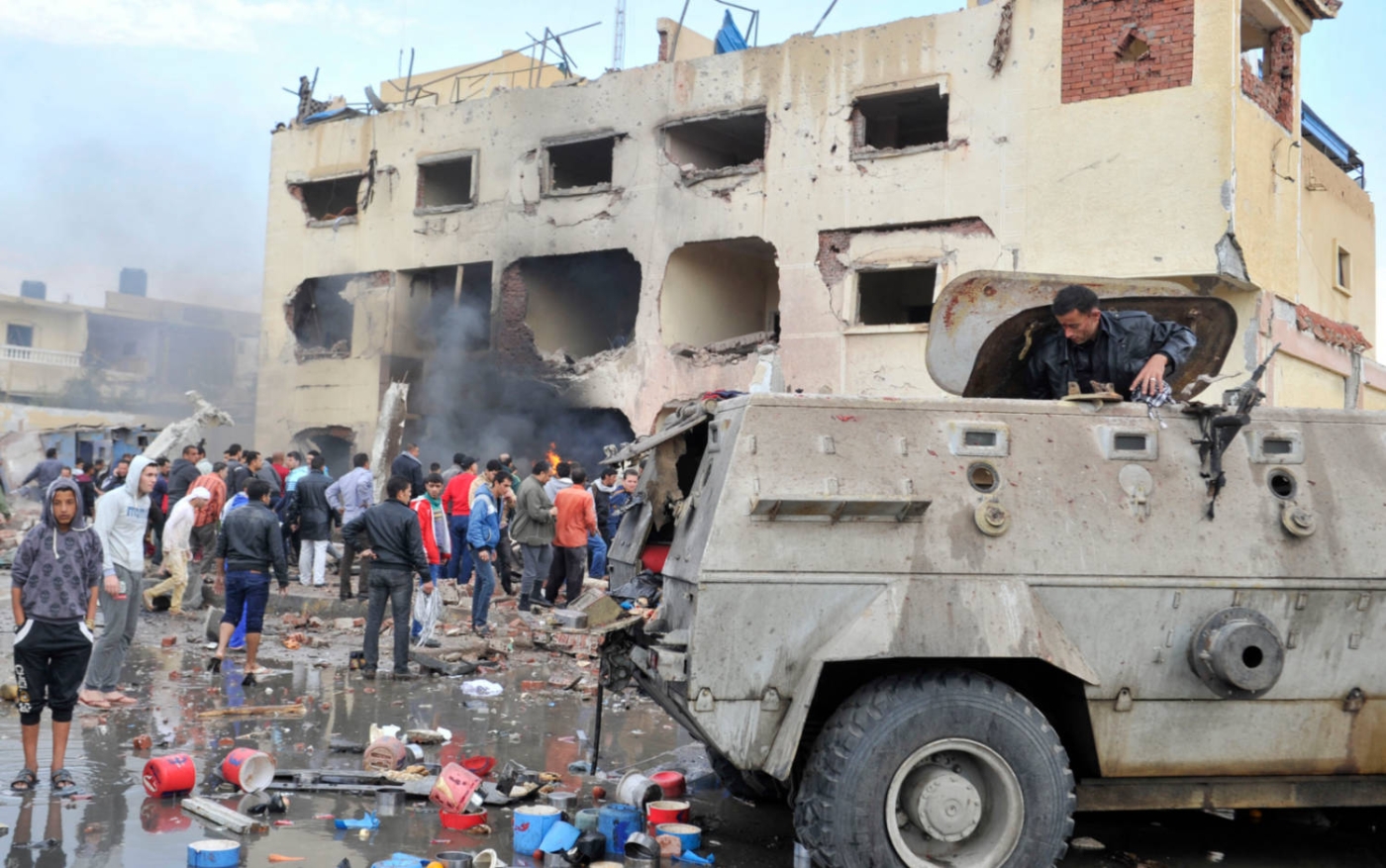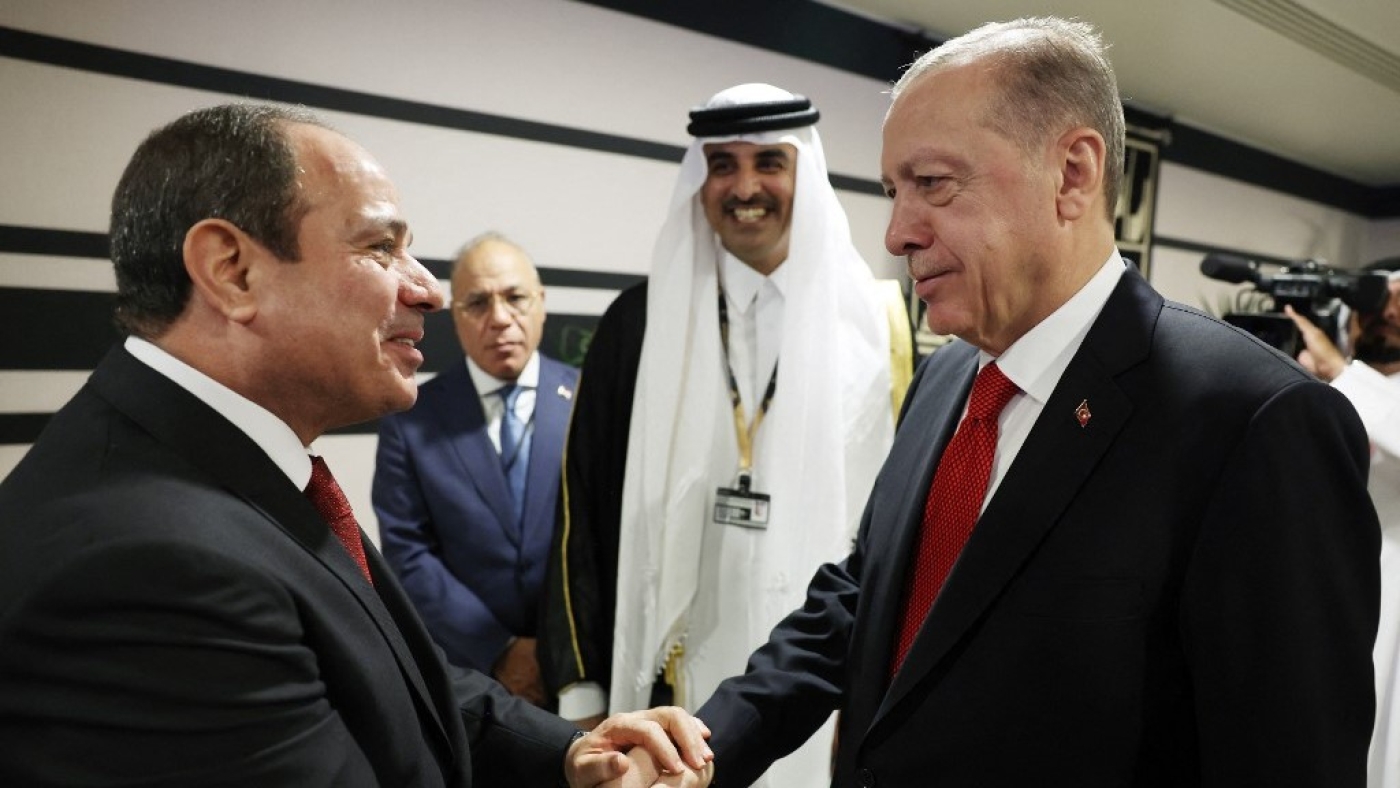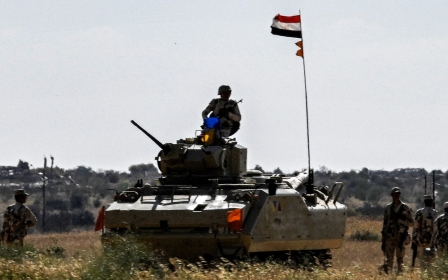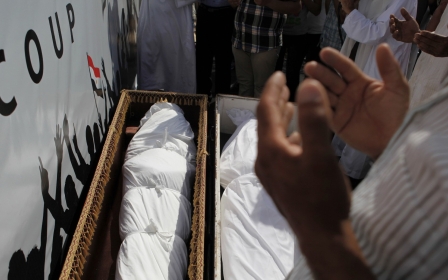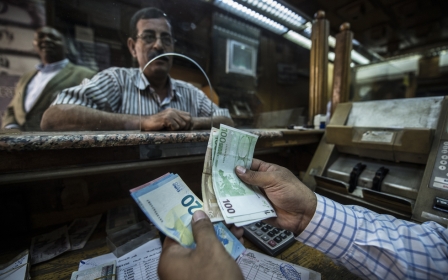President Abdel Fattah el-Sisi: How is Egypt doing after a decade of his rule?
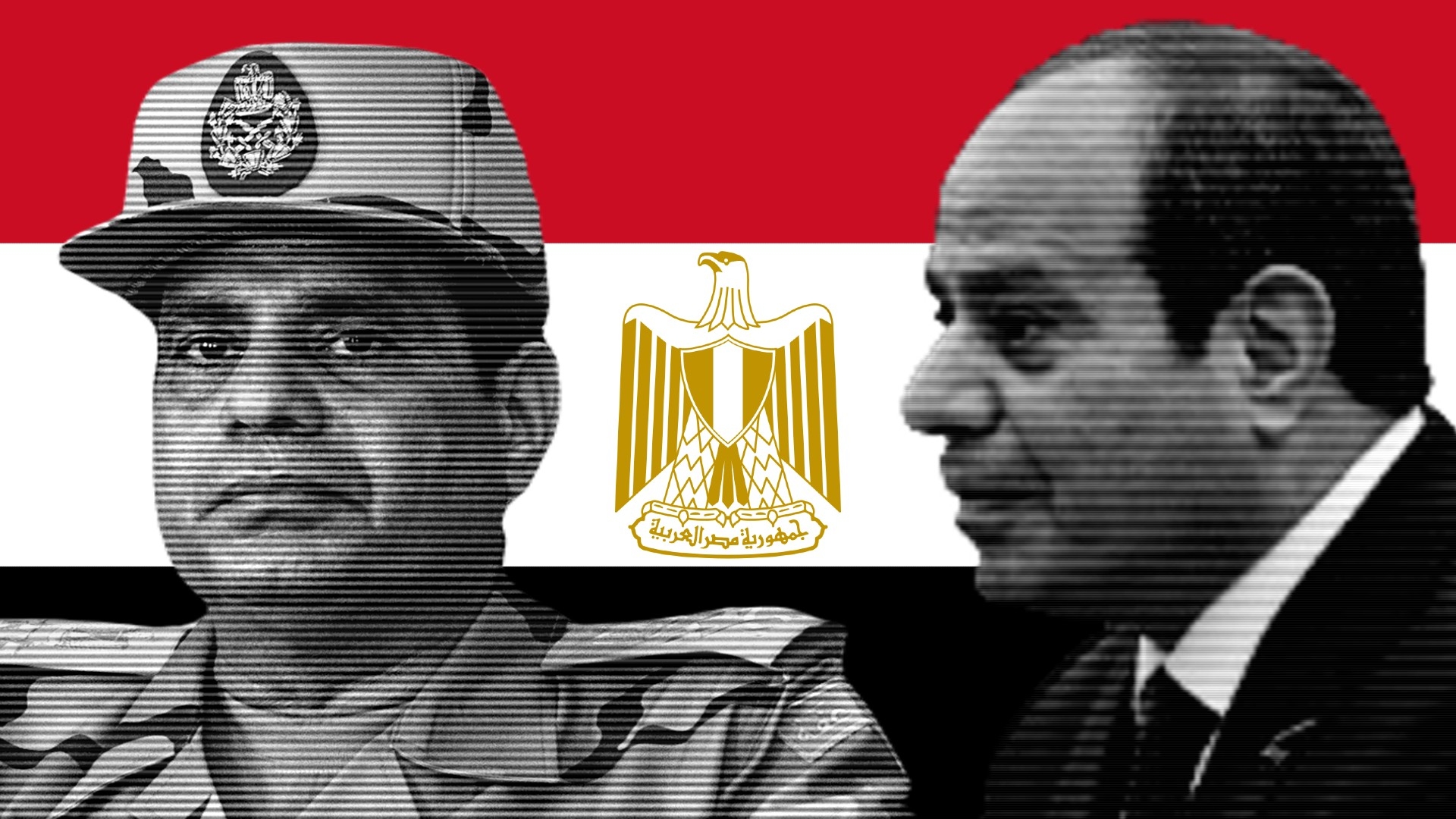
Abdel Fattah el-Sisi, president of Egypt since June 2014, had visions about leading his country long before the 2013 coup that brought him to power.
In one dream, recounted to a local newspaper before he became leader, Sisi said he had a conversation with the late president Anwar al-Sadat: “I told him that I knew I would become president of the republic, and he said he knew I would become president of the republic."
In another, he said he was told: "We will give you what we have not given anyone."
Abdel Fattah Saeed Hussein Khalil el-Sisi, the sixth president of Egypt, was born in Cairo on 19 November 1954. His father was an antiques merchant and his mother a homemaker.
When he first became president, Sisi had no detailed political platform, no political party, and only two main promises: that he would bring about economic prosperity within two years in office; and that he would obliterate terrorism.
New MEE newsletter: Jerusalem Dispatch
Sign up to get the latest insights and analysis on Israel-Palestine, alongside Turkey Unpacked and other MEE newsletters
Yet, 10 years into his rule, Egyptians are getting poorer and the main targets of his war on terrorism appear to be the peaceful political opposition.
Who is Sisi and how did he rise to power?
Sisi graduated from the Egyptian Military Academy in 1977. He then served in the armed forces, first commanding a mechanised division in the infantry, then as Egypt's military attaché in Riyadh and commander of Egypt's Northern Military Zone in Alexandria.
During his military career, he studied at the British Command and Staff College in 1992 and the United States Army War College in Carlisle, Pennsylvania, in 2006.
Sisi was also head of military intelligence until the 2011 revolution forced President Hosni Mubarak from power. But while he was promoted to field marshal in January 2014, just before retirement and after more than three decades of service, he never saw active combat.
With Mubarak gone, Sisi became the youngest member of the ruling interim military council, the Supreme Council of the Armed Forces (Scaf), which handed power to Mohamed Morsi, Egypt’s first democratically elected president, in June 2012.
Two months later, Morsi appointed Sisi as defence minister and commander-in-chief of the army in a surprise reshuffle, forcing Field Marshal Mohamed Hussein Tantawi into retirement after more than 20 years in the post.
During this time, Sisi came to prominence as a de facto mediator between Morsi and members of the opposition in an apparent challenge to the president.
What was Sisi's role in the 2013 coup?
A year into Morsi’s rule, and following large anti-government protests against the backdrop of political and economic malaise, Sisi staged a successful coup on 3 July against the administration, detaining the president and his senior staff and declaring an interim government in which Sisi was to serve as deputy prime minister.
Throughout the months following the removal of Morsi, Sisi denied any intention to run for office and insisted that his move was not a coup.
Sisi’s supporters regarded the protests as a second revolution after the January 2011 revolution that ousted Mubarak. In contrast, Sisi's opponents called it a bloody coup against popular legitimacy and the will of Egyptians, as expressed through democracy.
In the months following the coup, Sisi oversaw what rights groups described as possible crimes against humanity, as thousands of pro-Morsi protesters were gunned down or detained in the country’s worst episode of police brutality in modern history.
The crackdown culminated in what became known as the Rabaa massacre, in which more than a thousand protesters who demanded an end to the coup were killed by security forces in one day on 14 August 2013 in Cairo’s Rabaa Square.
In addition to his position as deputy prime minister, Sisi also retained his position as minister of defence, and was often the public face of the new administration.
In the lead-up to the Rabaa massacre, he sought a direct “authoritsation” from the Egyptian people to manage what he said was terrorism. He eventually retired from his military career in March 2014 and announced that he would run as a candidate in the May 2014 presidential election.
When did Sisi become president?
Sisi ran against one opponent, Hamdeen Sabbahi, one of the left-wing politicians who supported the coup and was elected president with 97 percent of the vote. He was sworn in as president on 8 June 2014.
The election was widely considered to be a sham, as most of Sisi’s possible opponents were in jail, including Morsi and supporters of his Muslim Brotherhood group, along with senior opposition leaders from other parties that rejected the coup, and secular youth leaders of the 2011 revolution.
Sisi was reelected four years later in 2018 and introduced constitutional amendments in 2019 that would allow him to stay in power for two further consecutive terms of six years each instead of four. Sisi is currently serving his third term after his election in December 2023 and reinstatement as president in April 2024. As things stand, he will be obliged to stand down in 2030.
In every election that followed the 2013 coup, Sisi's potential opponents have been excluded, jailed, or disqualified. This includes Ahmed Shafik, the last prime minister under Mubarak and Morsi’s main presidential rival, who was reportedly forced out of the 2018 race after threats from a senior intelligence officer.
Another rival, Abdel Moneim Aboul Fotouh, was detained after calling for a boycott of the 2018 vote; a third, General Sami Anan was detained for more than a year and has been under house arrest since his announcement that he would run for presidency in 2018.
The latest challenger to Sisi, left-wing politician Ahmed Tantawy, has also been detained in the aftermath of the 2023 elections and is currently serving a one-year prison term for alleged unauthorised campaign activities.
What did Sisi plan for Egypt?
Sisi did not present a detailed electoral platform at the start of his rule 10 years ago. Instead, he made broad promises to improve living standards and to protect the poorest segments of society.
He used a style of communication that played on the popular imagination and that seemed to ensure his popularity for several years, using phrases such as “Egypt is the mother of the world” and pledging that he would again make it world-class.
Sisi also lamented that previous leaders did not sufficiently care for the people and that what was needed was empathy and concern. He promised unprecedented economic prosperity within two years. When that failed to materialise by 2015, he promised that 2020 would see the culmination of significant economic development. When that failed to materialise he blamed the Covid crisis and the Russia-Ukraine war.
However economic indicators have consistently worsened under his rule. Egypt is the most populous Arab country, with an estimated 106m people. The World Bank estimated that nearly 30 percent of its population was poor in 2019, with millions more at risk of falling below the poverty line.
The Egyptian pound has dwindled by more than 600 percent since Sisi came to power in 2014 when it traded at about seven pounds to the dollar. At the time of writing it is now at around $48 to the dollar.
The cost of food staples has risen due to currency fluctuations: in June 2024, the government increased the price of subsidised bread by 300 percent, for the first time in 35 years, affecting an estimated 65m Egyptians who rely on bread as their main food staple.
But as the economy faltered, so Sisi shifted into blame mode. In January 2023, he attacked the media for negative public reaction about the food costs. "Why do you portray Egyptians as if they are in a state of panic over food and drink? This is not appropriate," he said. "I am not saying this is not true; but eating and drinking is not the end of the world."
In a later speech in October 2023, Sisi called his opponents "liars, saboteurs and wicked", as critics questioned the billions spent on infrastructure projects while many Egyptians struggled. "Don't you Egyptians dare say you would rather eat than build and progress," Sisi said. "If the price of the nation’s progress and prosperity is to go hungry and thirsty, then let us not eat or drink.
"Don't undermine the cause of our nation and make us the world's laughing stock. Stand fast and transform the cruel circumstances we are going through into a gift. The harder you stand fast, the sooner it [the economic crises] will pass."
How has Sisi tried to solve the economic crisis?
Since Sisi took power, Egypt’s debt has more than tripled to $165bn. In addition, it has paid $132bn in installments and interest on external debt over the same period, with these payments accounting for most of government expenditure. In February, foreign currency reserves stood at only $35bn.
In February, global partners including the International Monetary Fund, the World Bank, the European Union, and the United Arab Emirates signed rescue deals with Egypt worth more than $57bn.
A $35bn deal with the UAE in February for Cairo to build a new city on Egypt’s north coast boosted government confidence enough that it floated the currency, one of the bailout conditions imposed by the IMF.
The government has also been criticised for not allocating the constitutionally mandated percentages of expected GDP to budget for education and healthcare: each sector respectively only received 1.94 percent (instead of six percent) and 1.5 percent (instead of three percent).
What are Sisi's mega projects?
Sisi's economic vision, known as Egypt Vision 2030 (and inspired by the Saudi strategy Vision 2030) is largely based on expensive mega projects that he believes can transform the country's future
They include the digging of a 35km lane along a section of the Suez Canal, branded as a "New Suez Canal". The project cost $8.2bn: Sisi promised it would boost the canal’s revenues and alleviate Egypt’s economic woes. Yet, the canal's revenues have dropped in recent years and Egypt is now considering a further expansion of the strategic waterway.
A study by the Alternative Policy Solutions think tank at the American University in Cairo published in August showed that the 2015 project has not boosted the canal’s income as hoped: expenditures including wages and taxes, have increased in line with revenues, with the cost-to-income ratio a negative indicator of the profitability of the project since 2015.
Another mega project, and one of the blueprints for Sisi's rule, is the New Administrative Capital (NAC), a $58bn “smart city” that is intended to relieve some of the congestion in Cairo. It's where Sisi inaugurated his 2024 term, and to where he and key government ministers and agencies have relocated since April.
NAC, which is publicly funded and has yet to have a name, is some 45km east of Cairo. The first of three phases was scheduled to be completed by 2020 but is unfinished due to a lack of funds. Economic experts now question its feasibility, given Egypt’s ailing economy.
What has Sisi done about Islamic State?
Combating terrorism was one of Sisi's main pledges on taking power. The Egyptian military fought an Islamic State insurgency in the Sinai Peninsula for years, which initially emerged after the revolution in 2011 and became deadlier after the fall of Morsi in 2013. Sisi eventually announced the defeat of the group in 2022.
However, the campaign has been denounced for its disproportionate impact on the civilian population. Human Rights Watch has accused the Egyptian army of possible war crimes against the tribal communities of North Sinai, including mass displacement and extrajudicial killings.
The Egyptian army has also been accused of not holding members of Islamic State accountable for alleged atrocities, and instead granting them amnesty. A senior IS leader behind a 2017 attack that killed more than 300 civilians in a Sinai mosque was released by the Sisi government in 2021 after a deal.
Meanwhile, the Sisi government has accused its peaceful opposition of supporting terrorism, and labelled the Muslim Brotherhood as well as the secular 6 April group, as terrorist groups.
Members of Sisi's opposition from across the political spectrum, as well as journalists and social media influencers, have faced allegations of supporting terrorism. Rights groups, however, have dismissed these allegations as politically motivated.
Most of those on the government's terror list are members or supporters of the political opposition.
What's Sis's record on human rights?
Since the coup, Sisi has led a ferocious crackdown on any opposition, initially targeting members and supporters of the Muslim Brotherhood, the group from which Morsi hailed. Sisi then extended the suppression to members of the secular and left-wing opposition, along with civil society and independent media.
At the time of writing, an estimated 65,000 political prisoners detained in the aftermath of Sisi’s coup are still in jail, including politicians, protesters, journalists, and civil society activists. Most are either in pre-trial detention for indefinite periods; or face charges of supporting terrorism, espionage, unlawful protests, and spreading false news, among other related charges.
Yet Sisi, in an interview with the American CBS's 60 Minutes TV show in 2019, denied his country holds any political prisoners.
Sisi's campaign against the opposition has been decried as the worst human rights crisis in the country's modern history, according to the Cairo Institute for Human Rights Studies (CIHRS). On 14 August 2013 alone, security forces killed more than 1,000 anti-Sisi protesters in what became known as the Rabaa Massacre.
Torture has also become widespread under Sisi. A legal analysis by local and international rights groups has concluded that it now amounts to a crime against humanity, given how systematic and widespread it has become, involving methodical beatings, electrical shocks, sexual violence, and denial of medical care.
What are Sisi's relations with Saudi Arabia, Israel and Turkey?
Since his coup in 2013, Sisi has been backed by the UAE and Saudi Arabia, who supported his government politically and financially.
In one of his most controversial decisions, since he became president, Sisi in 2016 signed an order ceding the strategic Red Sea islands of Tiran and Sanafir to Saudi Arabia, prompting widespread protests and an unsuccessful court case challenging the decision.
In contrast, Qatar initially opposed the coup and the associated crackdown on Qatari-backed Al Jazeera in Egypt, along with the suppression of the Muslim Brotherhood, the political group supported by Doha.
Egypt was also among the states that severed ties with Qatar in 2017, citing its alleged support for the Muslim Brotherhood and Iran. Doha-Cairo relations later thawed in 2021 as part of a reconciliation between Gulf countries and Qatar.
Egyptian-Turkish relations also became strained after the coup, due to Ankara’s support for Morsi’s democratically-elected government and its rejection of his deposal, the coup and the bloody aftermath.
But relations subsequently improved, with the restoration of diplomatic ties, and Turkish President Recep Tayyib Erdogan visiting Cairo to meet with Sisi in February 2024, despite regarding his Egyptian counterpart as a coup leader for most of the past decade.
Despite initial criticism of the coup and the Rabaa massacre, Cairo has maintained close ties with successive US administrations. Former US President Donald Trump called Sisi “my favourite dictator”, and Washington has continued to provide Egypt with military aid despite human rights concerns.
The EU has also continued to support Sisi, despite criticism of his human rights record by member states.
The Sisi government remains an Israel ally despite the latter’s devastating war on neighbouring Gaza and Israel’s takeover of the strategic Rafah crossing between Gaza and Egypt.
Egypt continues to act as a mediator between Israel and Palestinian groups, but that role has declined in recent years and Doha has played a more prominent role in mediation.
Israel's control of the Rafah crossing has also dealt a blow to Egypt's leverage in Gaza and its ability to influence the conflict.
Middle East Eye delivers independent and unrivalled coverage and analysis of the Middle East, North Africa and beyond. To learn more about republishing this content and the associated fees, please fill out this form. More about MEE can be found here.


